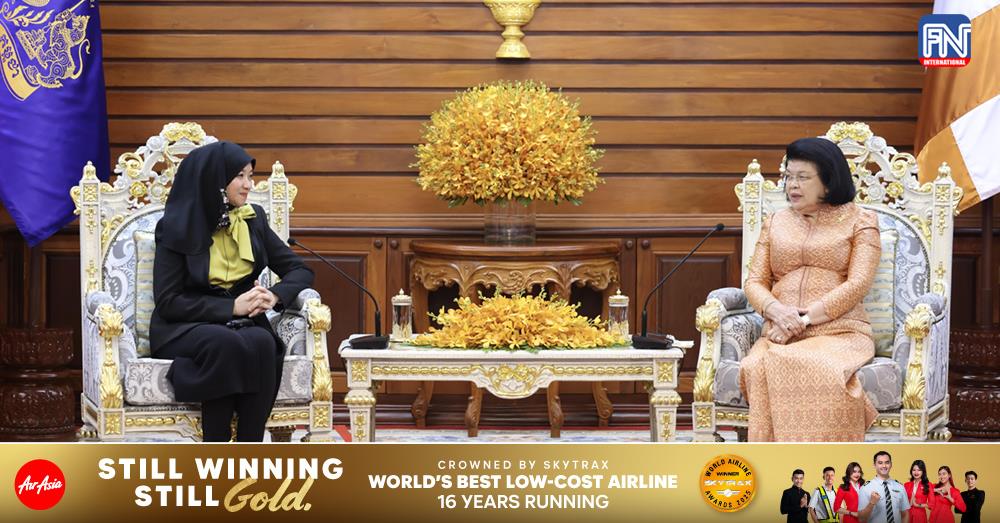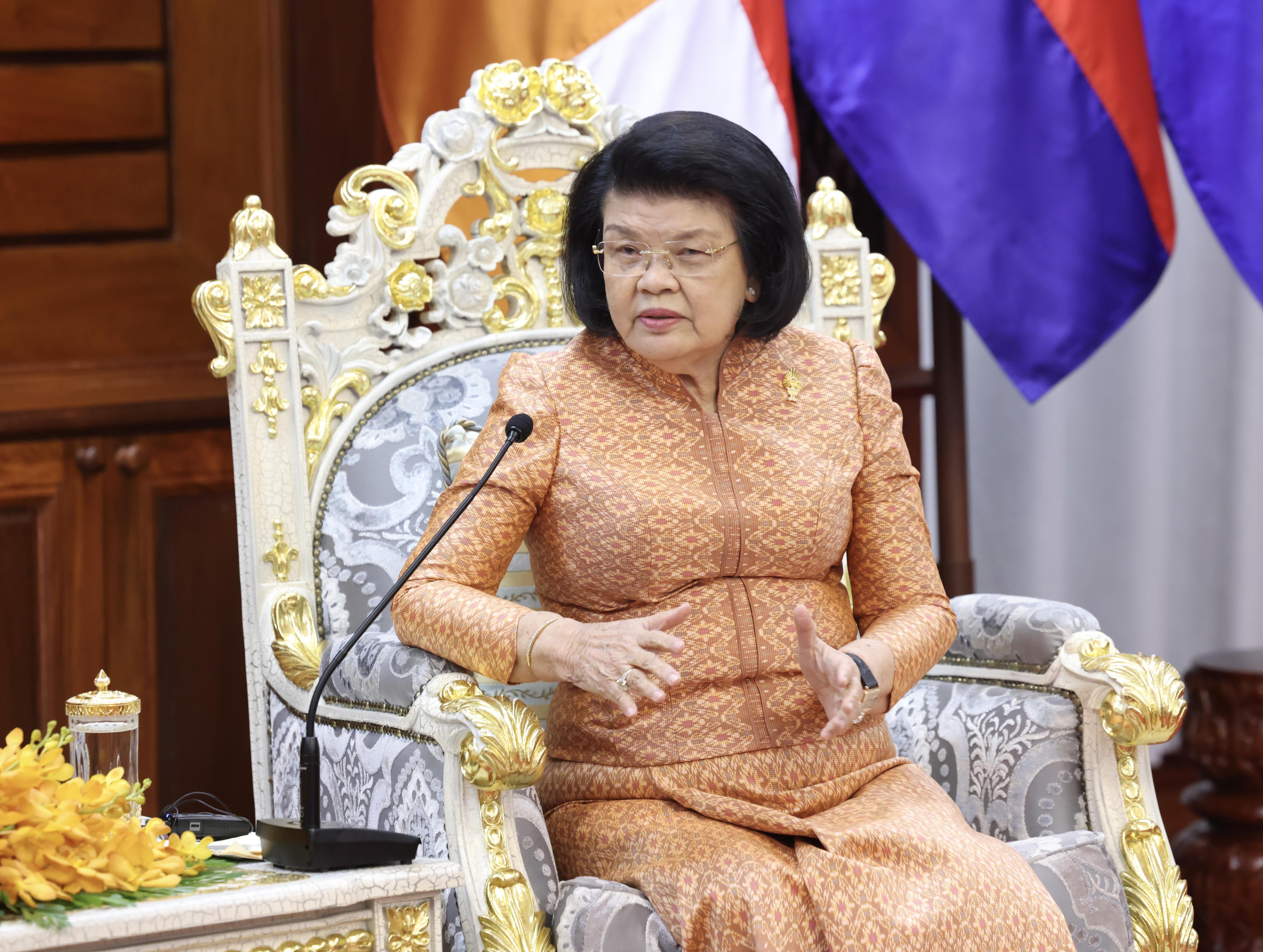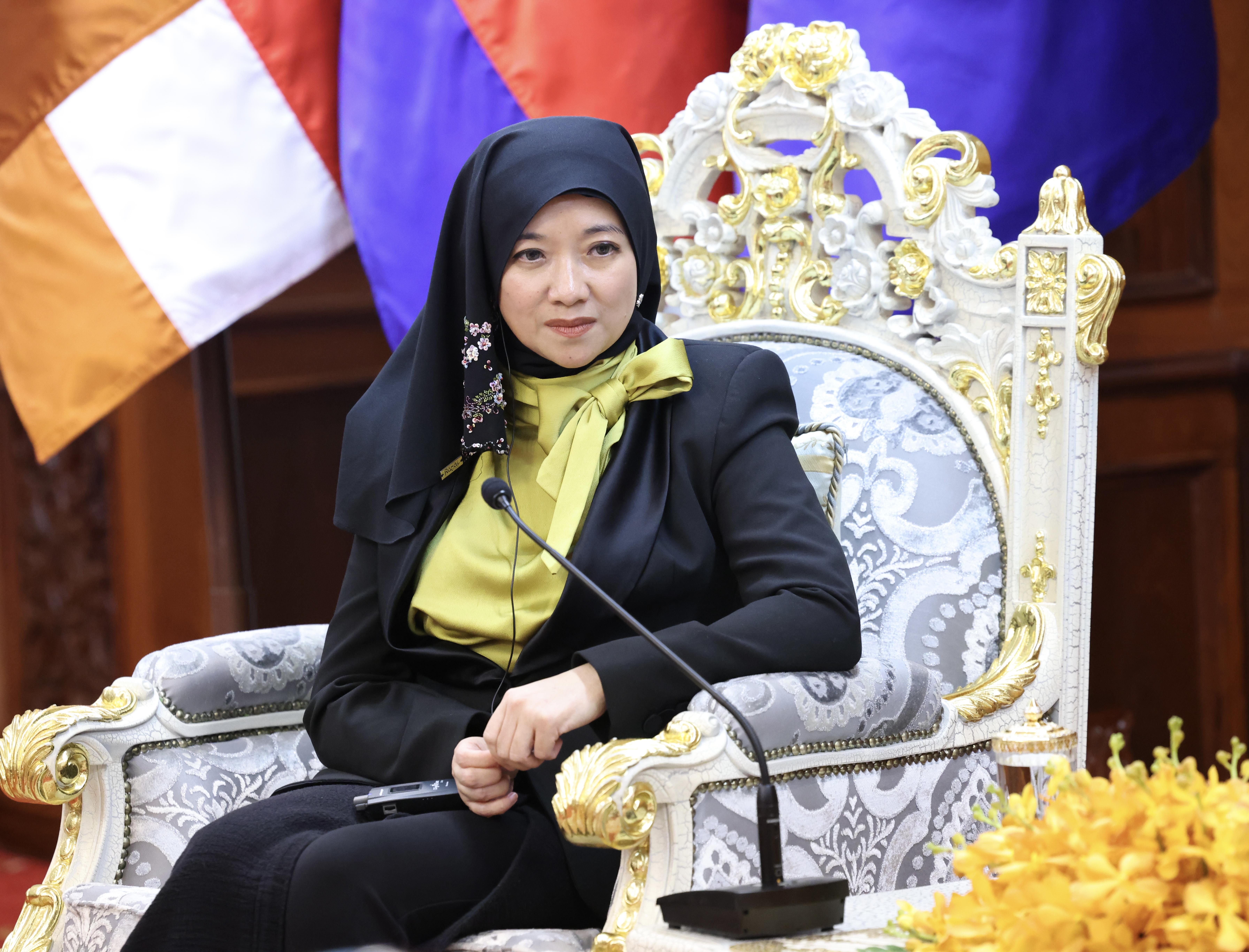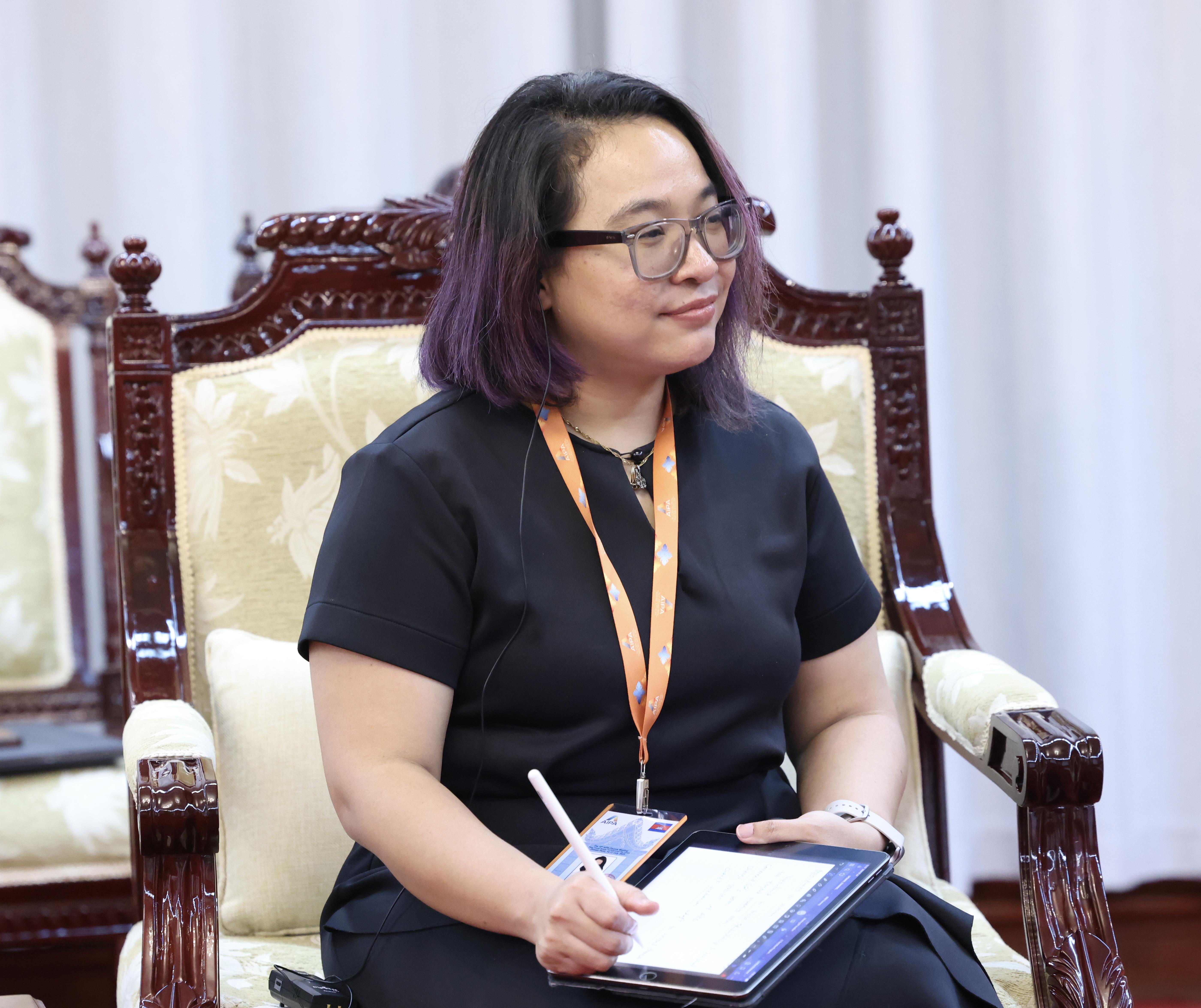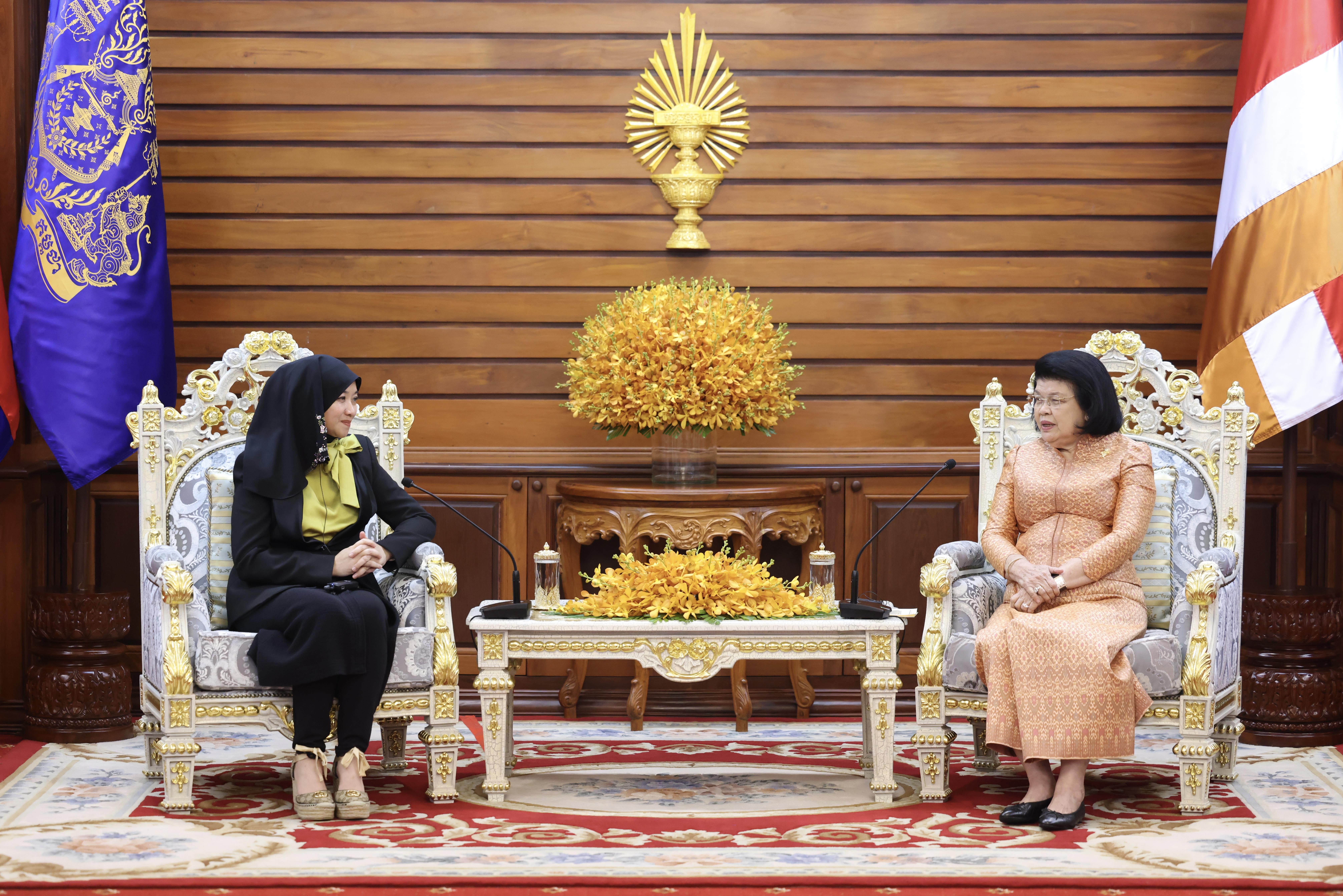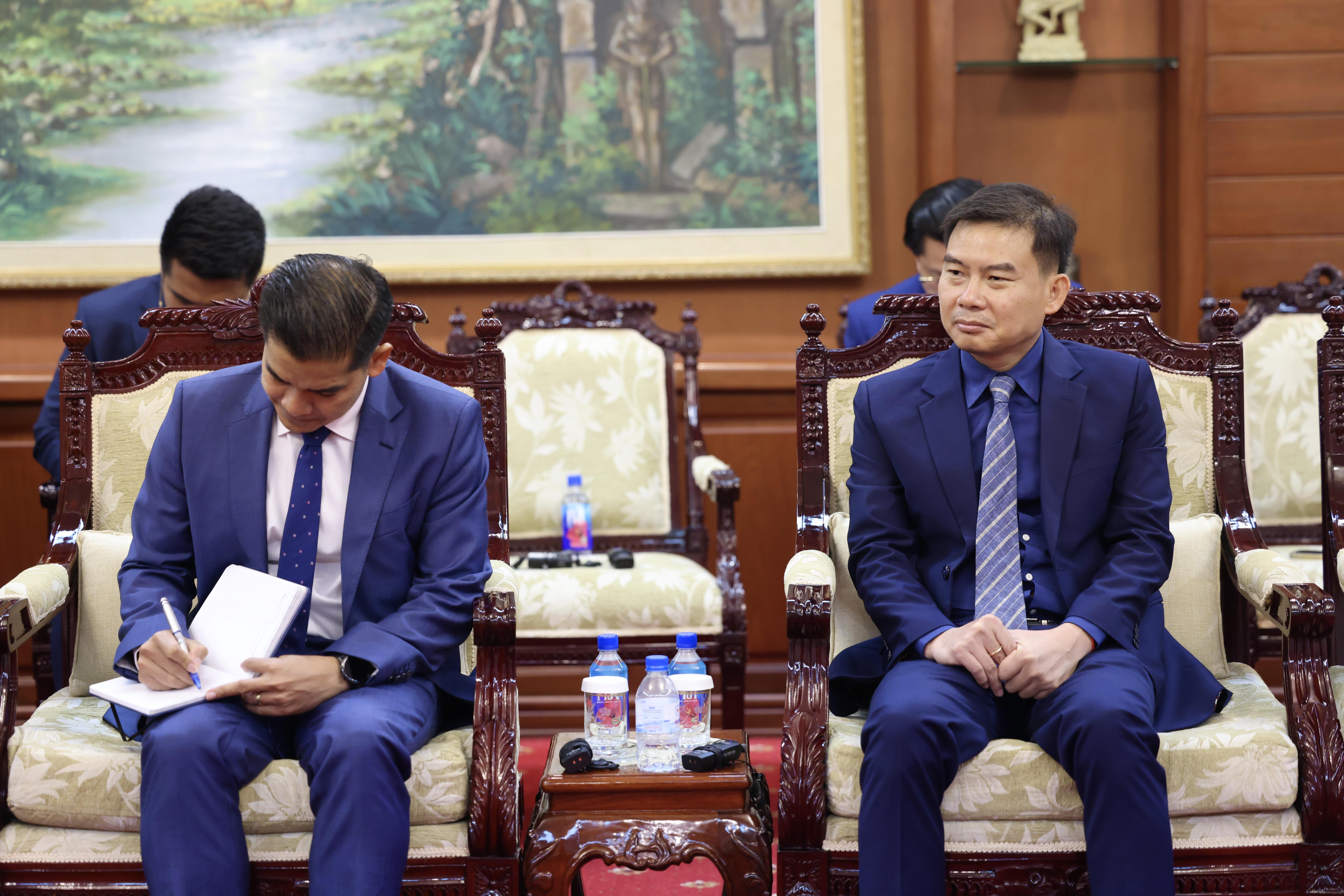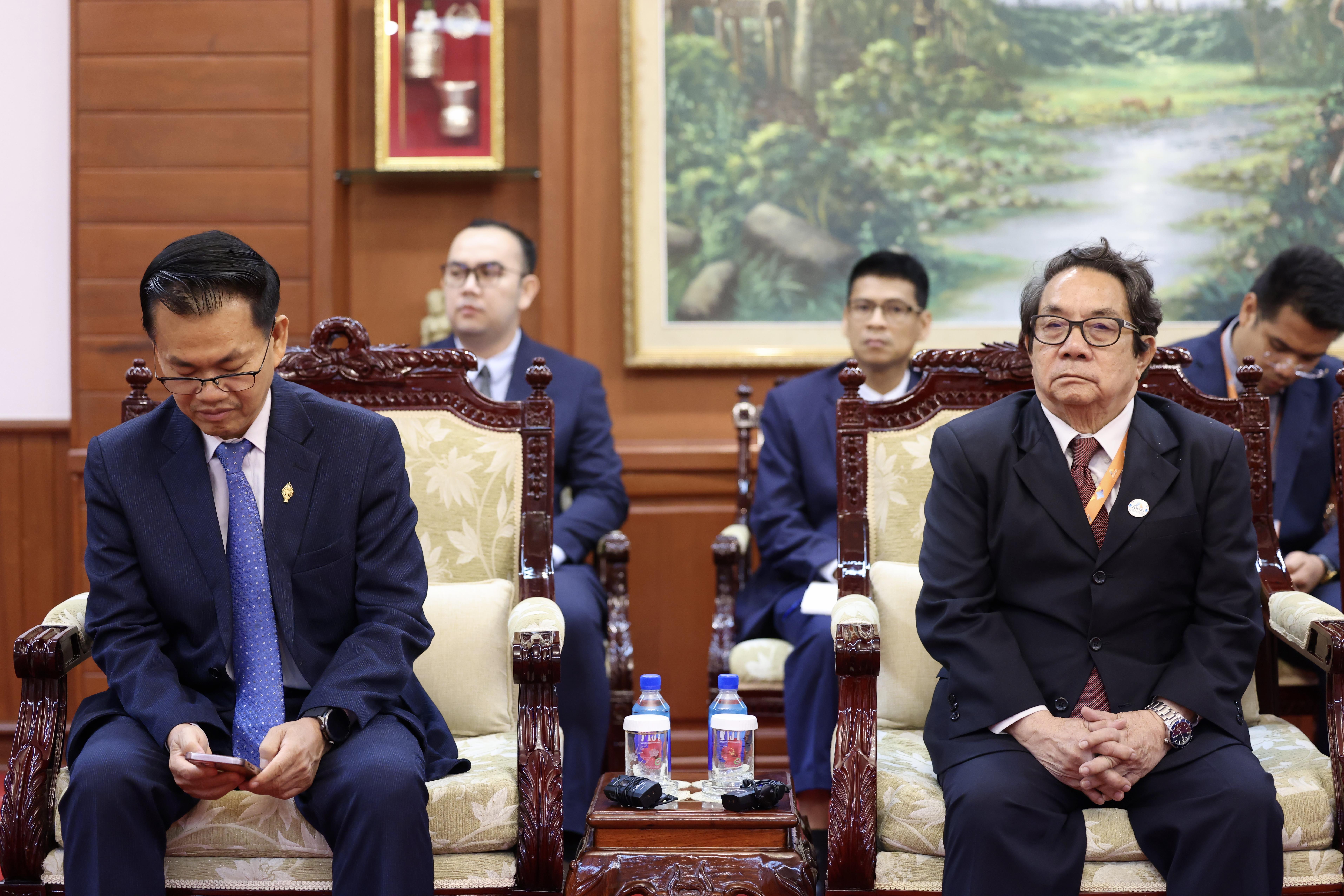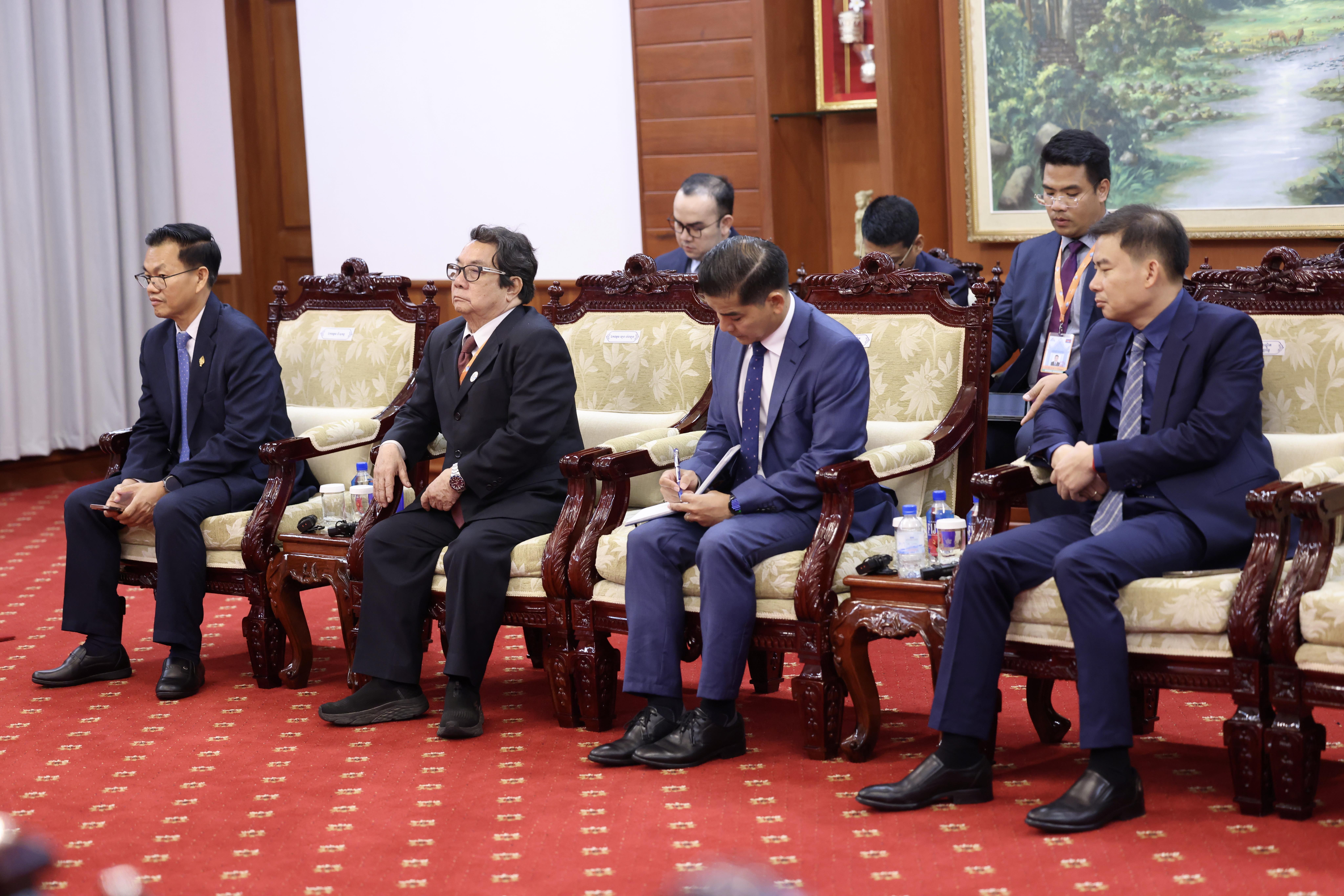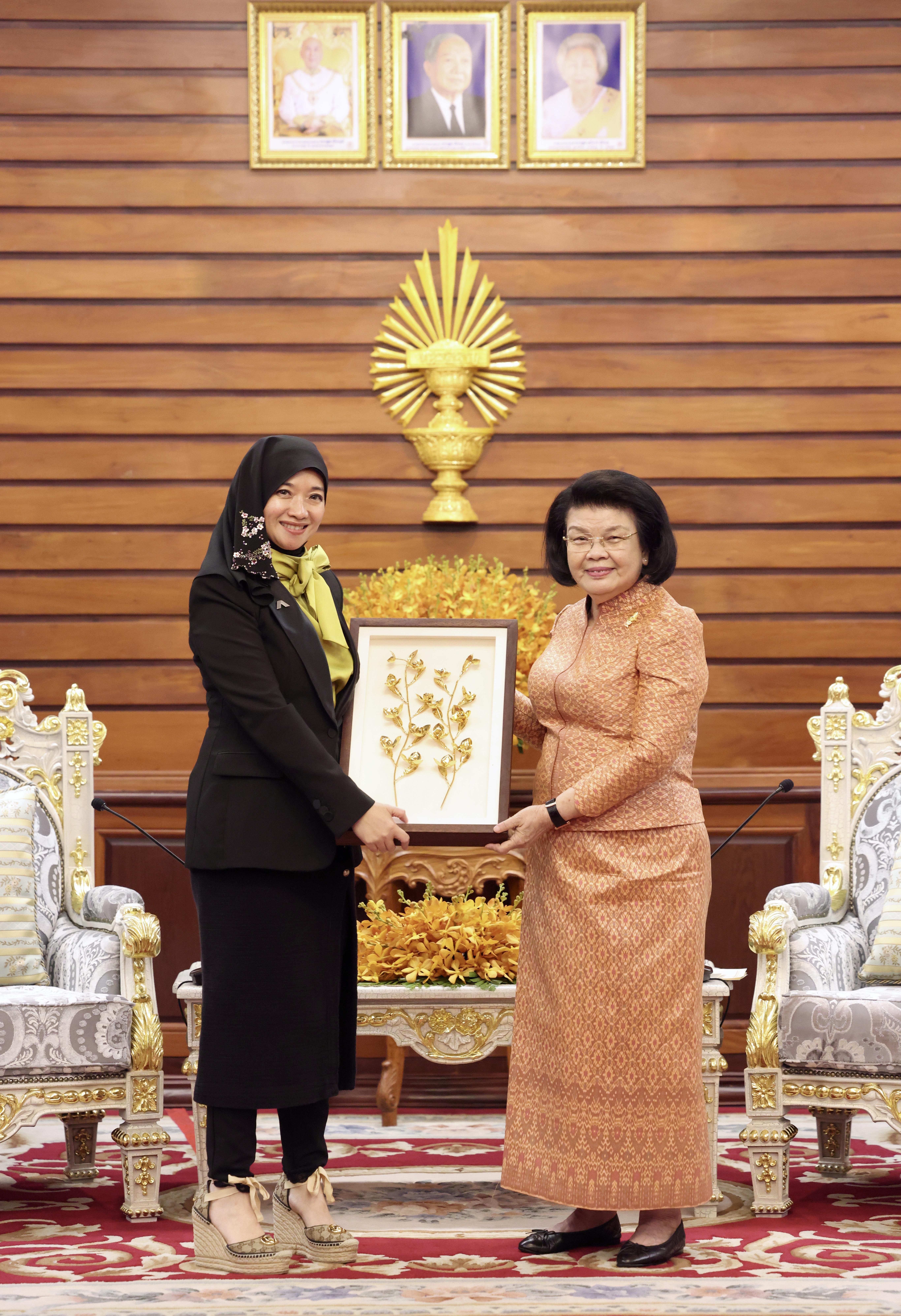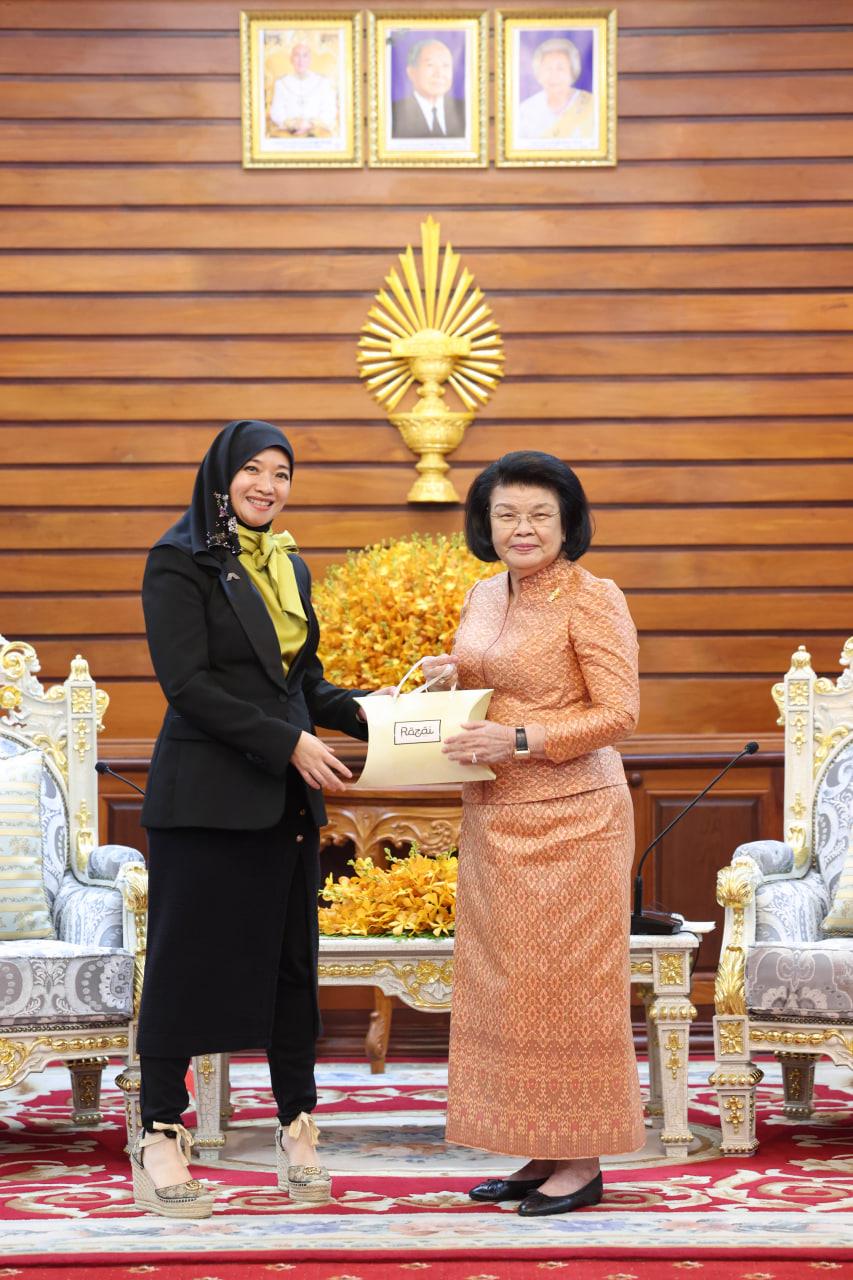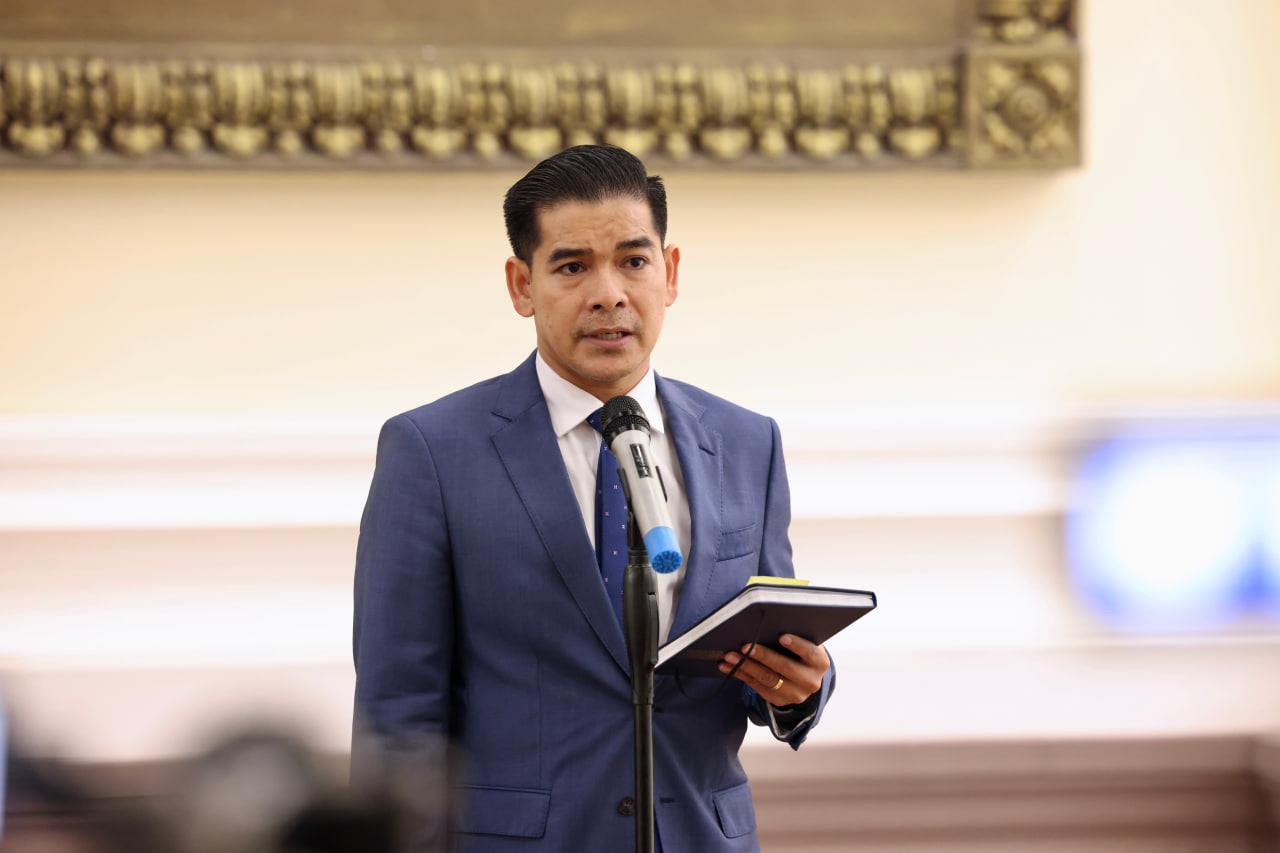(Phnom Penh): Secretary General of ASEAN Inter-Parliamentary Assembly (AIPA) Ar. Siti Rozaimeriyanty Dato Haji Abdul Rahman fully endorsed the Universal Peace Charter, an initiative launched by Samdech Techo Hun Sen. She also pledged to actively promote this charter on the international stage to safeguard peace, which is a universal aspiration of humanity. The Universal Peace Charter has garnered strong interest from AIPA’s observer states and partner countries.
The secretary general paid a courtesy call on Cambodian President of the National Assembly Khuon Sudary on 16 July 2025 at the National Assembly.
Samdech Khuon Sudary warmly welcomed Ar. Siti Rozaimeriyanty Dato Haji Abdul Rahman and her delegation, expressing appreciation for their valuable time and active involvement in preparing for the 16th AIPA Caucus. The visit and discussions underscored AIPA’s dynamic engagement and commitment to peace and prosperity both in the region and globally.
The National Assembly president conveyed heartfelt thanks to the AIPA secretary general and her delegation for their consistent support of Cambodia’s parliamentary initiatives, particularly the successful hosting of this year’s AIPA Caucus. She also expressed gratitude for AIPA’s endorsement of the Universal Peace Charter, a voluntary peace-building initiative championed by Samdech Techo Hun Sen. She emphasised that while the Charter is not a binding legal instrument, it plays a vital role in the voluntary promotion and protection of peace that is a priceless asset for humanity. She stressed that when a nation descends into war, everything is lost. Having experienced conflict, Cambodia does not wish such suffering upon any of its friends.
The Universal Peace Charter was launched during Cambodia’s hosting of the 11th Plenary Assembly of the International Parliament for Tolerance and Peace (IPTP) in late November 2024. It is internationally recognised as a significant step in fostering closer ties between parliaments and peace advocates.
Ar. Siti Rozaimeriyanty Dato Haji Abdul Rahman expressed sincere gratitude for the warm hospitality shown by the Cambodian National Assembly, particularly Samdech Khuon Sudary. She highly praised Cambodia’s proactive contributions within AIPA and other inter-parliamentary platforms. Notable among Cambodia’s recent initiatives are the AIPA Digital Law Library, the Universal Peace Charter, and the launch of the AIPA Partnership Building program during this 16th AIPA Caucus — all of which have strengthened AIPA’s role in promoting dialogue, cooperation, and joint problem-solving both regionally and globally.
Her term as AIPA secretary general will conclude in September and will be succeeded by Chem Widhya, currently Chairman of the Senate Commission on Foreign Affairs, International Cooperation and Information. Despite her upcoming departure, she reaffirmed her commitment to maintaining strong relations with the Cambodian Parliament under all circumstances.
She also noted AIPA’s growing maturity, shifting from mere policy review and legal drafting toward concrete implementation efforts, making AIPA a more active and vibrant platform for the benefit of ASEAN’s 700 million citizens.
Samdech Khuon Sudary commended and highly valued the secretary general’s achievements during her nearly three-year tenure, emphasising that under her wise and capable leadership, the AIPA Secretariat has become more effective and widely recognized, encouraging broader international participation. Currently, AIPA has 26 observer countries.
Given the rising uncertainty and geopolitical challenges in the region and globally, she stressed the need to strengthen open, inclusive dialogue and uphold multilateralism and rules-based international order.
Cambodia is a peace-loving and law-abiding nation. As such, the president of the National Assembly cited the example of its border dispute with Thailand, which Cambodia sought to resolve peacefully through existing bilateral mechanisms and international law. Cambodia has made efforts to de-escalate tensions to maintain neighbourly relations and ASEAN unity. However, the other party expanded the dispute unilaterally, rejecting internationally recognized maps and using self-drawn maps, thereby prolonging the issue for years. Recently, the conflict has even expanded to include trade and economic issues, affecting the livelihoods of people on both sides.
=FRESH NEWS
